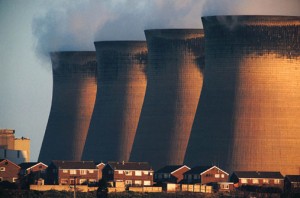The Latest News on Global Warming; Weirdness Still Prevails

(Digital Vision)
The U.N. is holding its big annual conference on climate change in Durban, South Africa. For those of you still paying attention to global-warming news, you may want to add a couple of links to your reading:
+ There’s been a second round of “ClimateGate” e-mails, (the first preceded the U.N.’s climate-change Copenhagen conference in 2009); the Times‘s Andy Revkin becomes a more prominent character this time around, for which he is attacked, against which he promptly defends himself.
+ A new study in Science argues with the accepted wisdom on climate sensitivity. From the website of Oregon State University, home to lead researcher Andreas Schmittner:
A new study suggests that the rate of global warming from doubling of atmospheric carbon dioxide may be less than the most dire estimates of some previous studies – and, in fact, may be less severe than projected by the Intergovernmental Panel on Climate Change report in 2007.
Authors of the study, which was funded by the National Science Foundation’s Paleoclimate Program and published online this week in the journal Science, say that global warming is real and that increases in atmospheric CO2 will have multiple serious impacts.
However, the most Draconian projections of temperature increases from the doubling of CO2 are unlikely.
+ And in the Wall Street Journal, Bret Stephens raises hell by not only arguing that global warming is akin to a religion but that the religion is dying:
As with religion, it is presided over by a caste of spectacularly unattractive people pretending to an obscure form of knowledge that promises to make the seas retreat and the winds abate. As with religion, it comes with an elaborate list of virtues, vices and indulgences. As with religion, its claims are often non-falsifiable, hence the convenience of the term “climate change” when thermometers don’t oblige the expected trend lines. As with religion, it is harsh toward skeptics, heretics and other “deniers.” And as with religion, it is susceptible to the earthly temptations of money, power, politics, arrogance and deceit.
Also, fwiw, our latest podcast (“The Truth Is Out There … Isn’t It?”) examines how we make up our minds about the risks of climate change, and reports the surprising finding that higher levels of scientific knowledge are correlated with greater polarization on the issue:
Greater scientific literacy and numeracy were associated with greater cultural polarization: respondents predisposed by their values to dismiss climate change evidence became more dismissive, and those predisposed by their values to credit such evidence more concerned, as science literacy and numeracy increased.
In other words: the more you know, the more you know that what you know is true — even when it’s not.

Comments